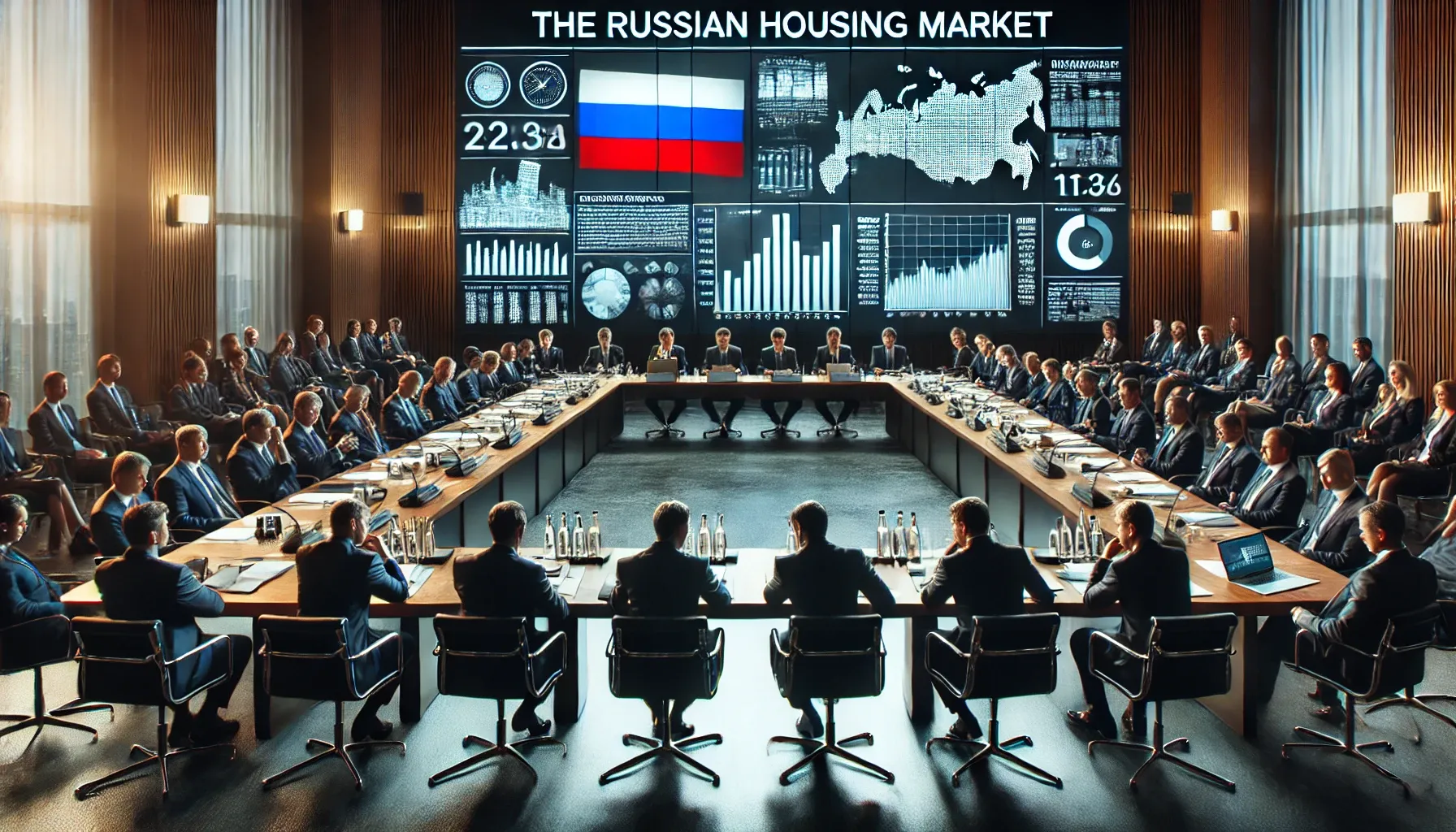Where is the Russian real estate market heading in the context of the new economic realities?

- How are the current conditions affecting the housing market in Russia?
- How will the mortgage and real estate market change in Russia?
State of the housing market
In recent times, there has been a significant deterioration in housing availability for the population, which is linked to changes in key interest rates and a high level of country risk. This statement was made by Nikolai Trifonov, an academician of the International Engineering Academy, who emphasizes the current realities of the Russian real estate market. More detailed information about the situation can be found in extensive materials from experts.
Changes since 2022
Certain changes in the Russian real estate market began to be observed in 2022, when political events significantly affected the economic sphere. Mortgage lending still represents a key financial instrument; however, in response to the international sanctions imposed, the Central Bank of Russia decided to sharply increase the key interest rate, which peaked at 20%. This decision made loans, including mortgages, extremely expensive, rendering housing unaffordable for many residents of the country. Additionally, the mass exodus of citizens abroad also negatively impacted the demand for housing and slowed down the pace of sales.
Discussion of issues at conferences
Recent discussions regarding the issues in the Russian real estate market took place at a conference organized by Sberbank, titled "Time for Change: New Challenges in the Industry and Development Prospects," as well as during the St. Petersburg International Economic Forum (SPIEF-2023). During these events, experts presented a wide range of opinions and assessments of the current situation in this sector.
Housing prices
According to reports from "Sberindex," over the past three years, prices in the primary real estate market have increased by 80%, while in the secondary market, they have risen by 50%. It is important to note that the growth rates of citizens' incomes and the level of inflation have been much lower than these figures, indicating a decrease in housing affordability for the country's population.
Forecasts and plans for construction
Deputy Minister of Construction and Housing and Utilities Nikita Stasishin reported that this year, Russia plans to introduce about 50 million square meters of new housing. However, considering the declining sales volumes, this figure may turn out to be too high. He also added that the preferential mortgage program, which has been a support for the market in recent years, continues to operate, and only President Putin makes decisions regarding its further development.
Overview of mortgage rates
Alexander Danilov, the director of the banking regulation and analytics department at the Central Bank, emphasized that maintaining certain economic indicators is essential for the stability of the real estate market. He noted that the regulator will focus on mortgage rates that are close to zero, as this leads to sharp fluctuations in housing prices.
- “We support initiatives to lower mortgage rates, but we are against any manipulation of them.”
- "In addition, we are open to various support programs, but they should be targeted and fulfill social functions, such as family mortgages."
The situation at Sberbank
Anatoly Popov, Deputy Chairman of the Board of Sberbank, reported a high level of approval for mortgage loan applications in his organization, as well as an increase in the number of loans issued. Approximately half of the mortgage loans were issued at rates ranging from 3 to 5% per annum. According to the latest data from April of this year, the average mortgage rate was 6%.
29 January
29 September
9 October 2024
9 October 2024
Changes in the mortgage loan subsidy program
In recent months, we have observed significant changes in the mortgage subsidy program. Previously, almost half of mortgage applications received government support, but now this percentage has dropped to just 20%. Participants at a recent conference expressed the opinion that subsidized mortgages are not a sustainable solution for supporting the real estate market. They believe this is a temporary measure, and to maintain stability in the sector, alternative methods need to be sought.
The speech of the Minister of Finance
Finance Minister Anton Siluanov emphasized the importance of increasing government spending at the St. Petersburg International Economic Forum 2023, noting that it has risen by 50% from 2019 to 2022, and suggested considering the possibility of raising taxes. The Central Bank, represented by its chairwoman Elvira Nabiullina, also weighed in: she left open the possibility of a new wave of privatization and an increase in the key interest rate. Experts believe that such measures should help reduce prices in the secondary housing market in Russia.
Analysis of housing prices
According to the data from the director of the analytical department of Sberbank, Natalia Zagvozdina, the increase in real estate prices outside of Moscow has significantly exceeded the inflation rate, reaching 21% over the past year.
- Analyzing the situation across the country, one can assume that this year prices may adjust by an average of 5%, and then generally remain stable.
- However, Zagvozdina added that in some regions, housing prices may drop by more than 5%, while in others they will remain the same, and in certain areas, there may be a price increase for various reasons.
Country risk premium
It is equally important to consider the dynamics of the country risk premium for Russia in the spring of 2023. This indicator is key for assessing the attractiveness of investments and is often calculated based on the yields of government bonds sold in international markets.
The Russian government issues a wide range of long-term government bonds in US dollars, with maturity dates ranging from August 2023 to June 2047. Despite the existing sanctions, these Eurobonds are still being traded on some stock exchanges.
Research objectives
The project of this research is focused on analyzing the investment attractiveness of real estate, which is why the calculations selected the most durable securities with a long maturity period, comparable to the economic lifespan of real estate assets.
To calculate the country risk premium, data on the yield of Russian government bonds maturing on June 23, 2047, with a coupon of 5.25%, was used. Graphical representations of the analysis results for Russia's country risk from the previous year can be seen below.

Conclusion
In conclusion, it is worth noting that the current situation in the Russian real estate market is a complex and multifaceted process influenced by numerous factors. The decrease in housing affordability for the population, caused by rising prices and changes in mortgage rates, is shaping the market dynamics for the coming years.
As I mentioned before, high country risk premium values and the impact of geopolitical events make the local market less attractive to investors, which in turn complicates financial flows and the structure of demand.
Necessary support measures
In light of these challenges, it is important to understand that various proposed support measures, such as preferential mortgages, may temporarily help stabilize the situation; however, they do not address the underlying issues related to the economy and the income of the population. It is necessary to seek sustainable and long-term solutions that are not based on short-term incentives but constructively contribute to the development of the sector.
Expert perspective
It is important to note that experts are unanimous in stating that a system of targeted measures is needed to support those groups of the population that truly require assistance. This also pertains to the necessity of creating new funding mechanisms to ensure the availability of housing not only in large cities but also in regions where the market often remains opaque and unstable.
Conclusions
Under these conditions, it will be extremely important to monitor the market's development, and only time will tell which of the proposed initiatives will prove to be the most effective. However, undoubtedly, government support, as well as the interaction between the private sector and civil society, must become key factors in overcoming the current challenges and creating a more stable situation in the Russian real estate market.
- Decrease in housing availabilityfor the population.
- The influence of geopolitical factorson the attractiveness of the market.
- The need for long-term solutionsinstead of temporary incentives.
- Targeted support measuresfor vulnerable population groups.
- Creating new financing mechanismsto ensure housing accessibility.
Tags
Comment
Popular Posts
29 September
329
9 October 2024
9932
9 October 2024
1484
Popular Offers

Subscribe to the newsletter from Hatamatata.com!
Subscribe to the newsletter from Hatamatata.com!
I agree to the processing of personal data and confidentiality rules of Hatamatata





